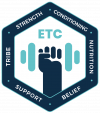Firstly, is it a healthier option for your body?
Should you be eating more plants? Absolutely!
Different fruits, vegetables, nuts, seeds, whole grains, pulses & legumes. The more colours, the better!
If everyone did just this thing, the world would be a much healthier, happier place.
But despite what the media may have led you to believe, a vegan or even vegetarian diet isn’t necessarily healthier than a diet that contains meat, eggs & dairy.
Say whaaaaaaaaat?!
Hear me out.
When you compare two groups of people; both containing generally health-seeking people
(people that exercise regularly, eat mostly whole foods, don’t smoke, drink minimal alcohol, eat minimal junk or heavily processed foods etc.)
However, one group consumes animal products while the other does not. You will struggle to find any significant differences in their health markers.
Alas, red meat doesn’t cause cancer. No, eggs don’t cause heart attacks. No, milk doesn’t cause brittle bones.
Fun Fact
None of the Blue Zones are Vegan.
(Blue zones are areas that have the higher concentrations of people living over 100 alongside low disease rates).
Only ONE Blue Zone in Loma Linda, California, contains a high proportion of vegetarians.
While all the blue zones have slightly different diets, some common nutritional themes include;
There is very little overeating, they are regular consumers of grains & legumes, and most of their food is home-grown & prepared.
If you want to try out a vegan or even just a more plant-based diet, here are my top tips for success:
#1
Education
Educate yourself on how to replace what you’re taking out to help make sure you aren’t taking away good elements already in your diet.
This is something that I know I certainly didn’t do as well as I could have at the beginning of my journey into adopting a vegan diet.
Many fall into the trap of simply removing all traces of animal products and not adding anything else back in.
Leaving them with a sad-looking bowl of lettuce and peanuts for every meal. Not ideal.
#2
Protein
Aim to include a variety of high protein plant foods in your diet.
Protein is important for overall health and will support your fitness goals, whether that’s fat loss, muscle gain or performance, in and out of the gym!
Plant-based protein powders are also a great way to supplement your diet with extra protein!
At ETC, we use Awesome Supplements Vegan Protein – my favourite is the chocolate salted caramel flavour. YUM.
#3
It’s called veganism, not junk-food-tarianism.
Ice cream, doughnuts, cheeses, burgers and pizza all have their place in an overall balanced diet (because a life without pizza isn’t a life for me, am I right?).
Another trap that you can fall into is going from a pretty good diet to a diet overrun with highly processed foods.
This is far easier today, where there is an abundance of plant-based alternatives to all your favourite foods.
As I said before, you should aim to consume a wide variety of different fruits, vegetables, nuts, seeds, whole grains, pulses & legumes. The more colours, the better!
This is an excellent opportunity to experiment with your diet and try new foods, meals & recipes that you perhaps haven’t eaten before.
Who knows, you might surprise yourself!
#4
Some things to pay attention to
Here are some of the most common vitamins, minerals & nutrients that those who follow a vegan diet might need to pay a little closer attention to:
CALCIUM is important for strong, healthy bones and primarily found in dairy products.
Vegan sources of calcium include fortified plant-based milks (such as soya, oat + rice), green leafy vegetables (such as broccoli, cabbage, okra + kale).
LONG WORDS ALERT.
IRON is used by the body to make hemoglobin, a protein in red blood cells that carries oxygen from the lungs to all parts of the body. Iron is mainly found in red meat, port, poultry & seafood.
Vegan sources include lentils, chickpeas, beans, tofu, cashew nuts, chia seeds, ground linseeds, pumpkin seeds, kale, quinoa and fortified cereals and milks.
VITAMIN B12 plays an essential role in red blood cell formation, cell metabolism, nerve function and the production of DNA. It’s typically found in meat fish, eggs & dairy.
Vegan sources of B12 include fortified plant-based milks, vegan spreads, nutritional yeast flakes, yeast extracts and fortified breakfast cereals.
OMEGA-3’S contribute to cardiovascular health and have anti-inflammatory benefits. Omega3’s are found in fish and other seafood (especially fatty fish, such as salmon, mackerel, tuna, herring, and sardines).
Vegan sources of omega-3’s include flaxseed, chia seeds and walnuts.
A high-quality vegan omega-3 supplement would be super beneficial here!
#5
Ditch the ‘all or nothing’ mentality.
You don’t have to empty the contents of your fridge & freezer into the bin and sell all your leather goods on eBay right now.
Start small.
Perhaps look for a new vegan recipe to try over the next week?
Or simply remove one or two animal products from your shopping list each time you go food shopping?
What now?
Finally, with all that said, the biggest tip that I can give you is to aim to make it a sustainable lifestyle change that adds to your life, rather than just taking away from it.
– Coach Jack
For more information on everything nutrition, health & fitness, email us at: hello@theetc.fit




